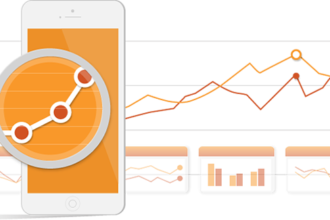
General Electric – a literal powerhouse of a corporation involved in virtually every area of industry, has been laying the foundations of what it grandly calls the Industrial Internet for some time now.
But what exactly is it? In this post I will try and give a basic overview of the ideas which they are hoping will transform industry, and how it’s all built around big data.

General Electric – a literal powerhouse of a corporation involved in virtually every area of industry, has been laying the foundations of what it grandly calls the Industrial Internet for some time now.
But what exactly is it? In this post I will try and give a basic overview of the ideas which they are hoping will transform industry, and how it’s all built around big data.
If you’ve heard about the Internet of Things which I’ve written about previously, a simple way to think of the industrial internet is as a subset of that, which includes all the data-gathering, communicating and analysis done in industry.
In essence, the idea is that all the separate machines and tools which make an industry possible will be “smart” – connected, data-enabled and constantly reporting their status to each other in ways as creative as their engineers and data scientists can devise.
This will increase efficiency by allowing every aspect of an industrial operation to be monitored and tweaked for optimal performance, and reduce down-time – machinery will break down less often if we know exactly the best time to replace a worn part.
Data is behind this transformation, specifically the new tools that technology is giving us to record and analyze every aspect of a machine’s operation. And GE is certainly not data poor – according to Wikipedia its 2005 tax return extended across 24,000 pages when printed out.
And pioneering is deeply engrained in its corporate culture – being established by Thomas Edison, as well as the first private company in the world to own its own computer system, in the 1960s.
So of all the industrial giants of the pre-online world, it isn’t surprising they are blazing a trail into the brave new world of big data.
GE generates power at its plants which is used to drive the manufacturing that goes on in its factories, and its financial divisions enable the multi-million transactions involved when they are bought and sold. With fingers in this many pies, it’s clearly in the position to generate, analyze and act on a great deal of data.
Sensors embedded in their power turbines, jet engines and hospital scanners will collect the data – it’s estimated that one typical gas turbine will generate 500Gb of data every day. And if that data can be used to improve efficiency by just 1% across five of their key sectors that they sell to, those sectors stand to make combined savings of $300 billion.
With those kinds of savings within sight, it isn’t surprising that GE is investing heavily. In 2012 they announced $1 billion was being invested over four years in their state of the art San Ramon, California analytics centre, in order to attract pioneering data talent to lay the software foundations of the Industrial Internet.
In aviation, they are aiming to improve fuel economy, maintenance costs, reduction in delays and cancellations and optimise flight scheduling – while also improving safety.
Abu Dhabi-based Etihad Airways was the first to deploy their Taleris Intelligent Operations technology, developed in partnership with Accenture.
Huge amounts of data are recorded from every aircraft and every aspect of ground operations, which is reported in real-time and targeted specifically to recovering from disruption, and returning to regular schedule.
And last year it launched its Hadoop based database system to allow its industrial customers to move its data to the cloud. It claims it has built the first infrastructure which is solid enough to meet the demands of big industry, and works with its GE Predictivity service to allow real-time automated analysis. This means machines can order new parts for themselves and expensive downtime minimized – GE estimates that its contractors lose an average of $8 million per year due to unplanned downtime.
Green industries are benefitting too – its 22,000 wind turbines across the globe are rigged with sensors which stream constant data to the cloud, which operators can use to remotely fine-tune the pitch, speed, and direction the blades are facing, to capture as much of the energy from the wind as possible.
Each turbine will speak to others around it, too – allowing automated responses such as adapting their behaviour to mimic more efficient neighbours, and pooling of resources (i.e wind speed monitors) if the device on one turbine should fail.
Their data gathering extends into homes too – millions are fitted with their smart meters which record data on power consumption, which is analyzed together with weather and even social media data to predict when power cuts or shortages will occur.
GE has come further and faster into the world of big data than most of its old-school tech competitors. It’s clear they believe the financial incentive is there – chairman and CEO Jeff Immelt estimates that they could add $10 trillion to $15 trillion to the world’s economy over the next two decades. In industry, where everything including resources is finite, efficiency is of utmost importance – and GE are demonstrating with the Industrial Internet that they believe big data is the key to unlocking its potential.
—–
As always, I hope you enjoyed this post. For more, please check out my other posts in The Big Data Guru column and feel free to connect with me via Twitter, LinkedIn, Facebook, Slideshare and The Advanced Performance Institute.










